Feeling belly-heavy, but you haven’t eaten all day? Here are little-known reasons behind a bloated belly.
Bloating is a common problem that women experience, especially in their thirties, forties, and fifties. While a lot of the time it can be due to eating specific foods or having food sensitivity issues or allergies, other times it’s not so much the specific foods you’re eating but health conditions.
Women especially are prone to developing medical conditions that can have bloating as a primary symptom. While some of them are relatively unharmful, others have more wide-reaching or serious implications, so understanding what is causing your bloating is key to addressing it in a safe and effective manner.
Do you struggle with bloating, gas, constipation, or other digestive issues? We’ve created a FREE guide to healing your gut naturally.
Click here to get your FREE copy of our Digestion Guide!
Causes of Bloating
Bloating is generally defined as an uncomfortable feeling in the abdomen associated with increased belly size and sometimes abdominal pain, but it’s not always clear what causes it.
These are the top five non-food related causes of bloating and what to do about them.
Cause: PMS and Other Hormone Changes

For many women, bloating can be one of the first symptoms that their period is on its way. In fact, as many as 85 percent of women will feel these premenstrual symptoms. (1) Hormone changes can lead to water retention and fluctuations in fluid levels in the intestines, which can lead to bloating and constipation that can amount to the feeling of having gained five or more pounds, virtually overnight.
For most women, bloating sets in a few days before “Aunt Flo” pays a visit and dissipates a few days into the cycle. But for some, bloating can be an intense and longer-lasting symptom of perimenopause, the period of time where the body transitions into menopause.
In other circumstances, bloating can be one of the first signs of pregnancy, well before a missed period.
Fix: Address Diet and Monitor Hormones
While pre-period bloating and pregnancy bloating are normal, it can still be uncomfortable and undesirable. While hormone levels may not adjust quickly, there are some easy ways to decrease hormone-induced bloating: (2, 3)
- Avoid caffeine and alcohol, especially if you are pregnant
- Skip junk and processed foods
- Eat fiber-rich foods to help the intestines work efficiently
- Stay properly hydrated
- Get your thyroid checked for hypothyroidism
- Get a healthy amount of gentle exercise
Cause: Gut Problems
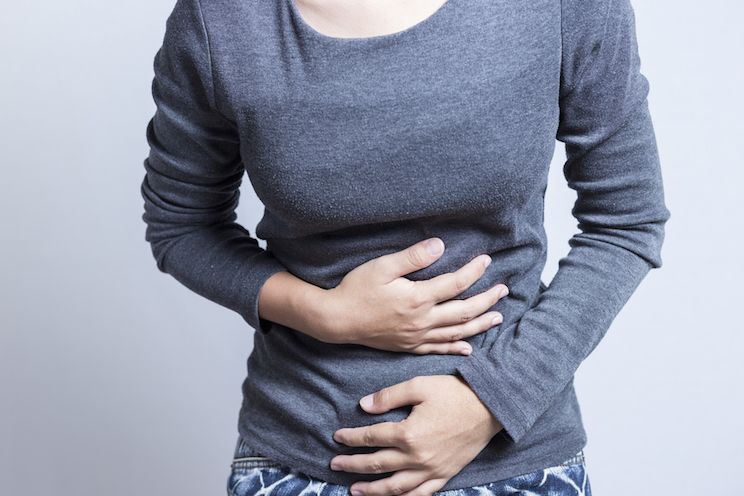
Your gut lies in the center of your abdomen where much of your digestion takes place. The large intestine is also the home of your microbiome – the collection of bacteria that live in the body and regulate things like the immune system, digestion, and even a large portion of the nervous system.
Good and bad bacteria both reside in the microbiome, and we need a proper balance between these two, and also for them to stay put. When bacteria proliferate outside of where they belong and instead migrate to the small intestine, a condition known as SIBO, or small intestinal bacterial overgrowth, occurs. This leads to bloating because food that doesn’t fully digest starts to ferment here, producing gas and disrupting the normal nutrient absorption process.
SIBO is often associated with other gut problems, like leaky gut or nutrient absorption issues. It is also commonly found in people who have digestive problems that start in the stomach, or even the mouth. Not chewing your food thoroughly can set off a chain reaction of poor digestion that results in overgrowth of bacteria in the small intestine.
Fix: Heal Digestion
If you do find that you have SIBO, leaky gut, or another digestive disorder, repair work must be done on the digestive tract and gut wall to patch up damage and to restore order to bacterial balance.
To do this, make sure that you are:
- Chewing food thoroughly
- Taking digestive enzymes
- Staying hydrated
- Focusing on antimicrobial support
Most of these protocols are best achieved with the personalized help of a practitioner. While you might be able to guess at your gut problems, definitive testing will help to make your path to recovery more efficient.
Cause: Celiac Disease

Celiac is an autoimmune disease triggered by the presence of gluten protein and affects the small intestine. Because the majority of digestion takes place here, many symptoms of celiac disease are centered around bloating and other intestinal pain.
As many as one in every 141 people have celiac disease, with common symptoms being weight loss, diarrhea, abdominal pain and bloating, and skin problems. (4)
Fix: Go Gluten-Free
The only way to treat celiac disease is to remove gluten from the diet entirely, which can minimize damage to the small intestine. Celiac disease is also associated with a number of other autoimmune conditions, including thyroid disease, so having one or the other can predispose someone for developing more chronic conditions.
To deal with celiac-induced bloating, take these vital steps:
- Get a proper diagnosis and work with a qualified practitioner
- Avoid all forms of gluten, cross-reactive foods, and cross-contamination
- Stay hydrated
- Eat plenty of vegetables and fruits
- Supplement with nutrients you are low or deficient in
When It’s Serious

Ovarian Cancer
While most bloating can be attributed to dietary sources or other common non-food causes like PMS or gut problems, sometimes abdominal bloating can be a sign of a more serious condition.
Ovarian cancer is often not diagnosed until it is in a later stage and that’s because many symptoms overlap with other female complaints, like:
- Bloating
- Feeling full quickly after eating
- Low appetite
- Frequent urge to urinate
- Lack of energy
- Feelings of fullness in the lower abdomen
The American Cancer Society estimates that more than 22,000 women will be diagnosed with ovarian cancer in 2018 and that more than 14,000 will die from it. (5)
The difference between bloating and abdominal symptoms from ovarian cancer and other common female causes are that most ovarian cancer symptoms will have a somewhat sudden onset and then won’t go away as cycle-related symptoms do.
Beyond bloating, ovarian cancer can produce other symptoms, like:
- Vaginal bleeding not related to menstruation
- Menstrual changes
- Weight changes
- Acne
- Low back pain
- Pain during intercourse
- Fatigue
- Indigestion
If you have bloating that can’t be attributed to something else, see your OBGYN immediately.
Ovarian cancer is a serious health problem and needs to be evaluated extensively by medical professionals. Having a family history of breast or ovarian cancer are significant risk factors, but even without risk factors, ovarian cancer can occur. If you have questions about your ovarian or reproductive health, blood work and other testing can help to rule out causes for bloating.
Endometriosis
Endometriosis is a gynecological condition that causes a range of symptoms when endometrial tissue from the lining of the uterus grows where it should not such as the bladder, ovaries, intestines, and rectum. It impacts as many as 10 percent of women. (6)
For some women it can be so mild the condition is not discovered, while in others the pain can be severe. Endometriosis can also cause referred pain that can feel like bloating or intestinal problems or it can directly affect the intestines and surrounding organs.
The most common symptoms associated with endometriosis are pelvic pain, painful periods, pain during or after sexual intercourse, lower abdominal pain, lower back pain, and even infertility.
Get medical care and make lifestyle adjustments.
Many symptoms of endometriosis can overlap with ovarian cancer and other gynecological problems, so it’s important to work with a qualified medical professional to get a diagnosis and to rule out factors that are not present.
If you find that you do have endometriosis, lifestyle changes can help ease discomfort. These can include:
- Antioxidant supplements
- Acupuncture
- Increasing vegetable intake
- Limiting coffee, alcohol, and other stimulants
- Eating plenty of omega-3 fatty acids
Bottom Line
Women can experience bloating for many reasons ranging from food sensitivity to chronic conditions like endometriosis to ovarian cancer. Regardless of the cause of your bloating, if it becomes a common symptom in your playbook, it’s time to get it checked out by a medical professional to rule out serious causes and to find answers for relief.
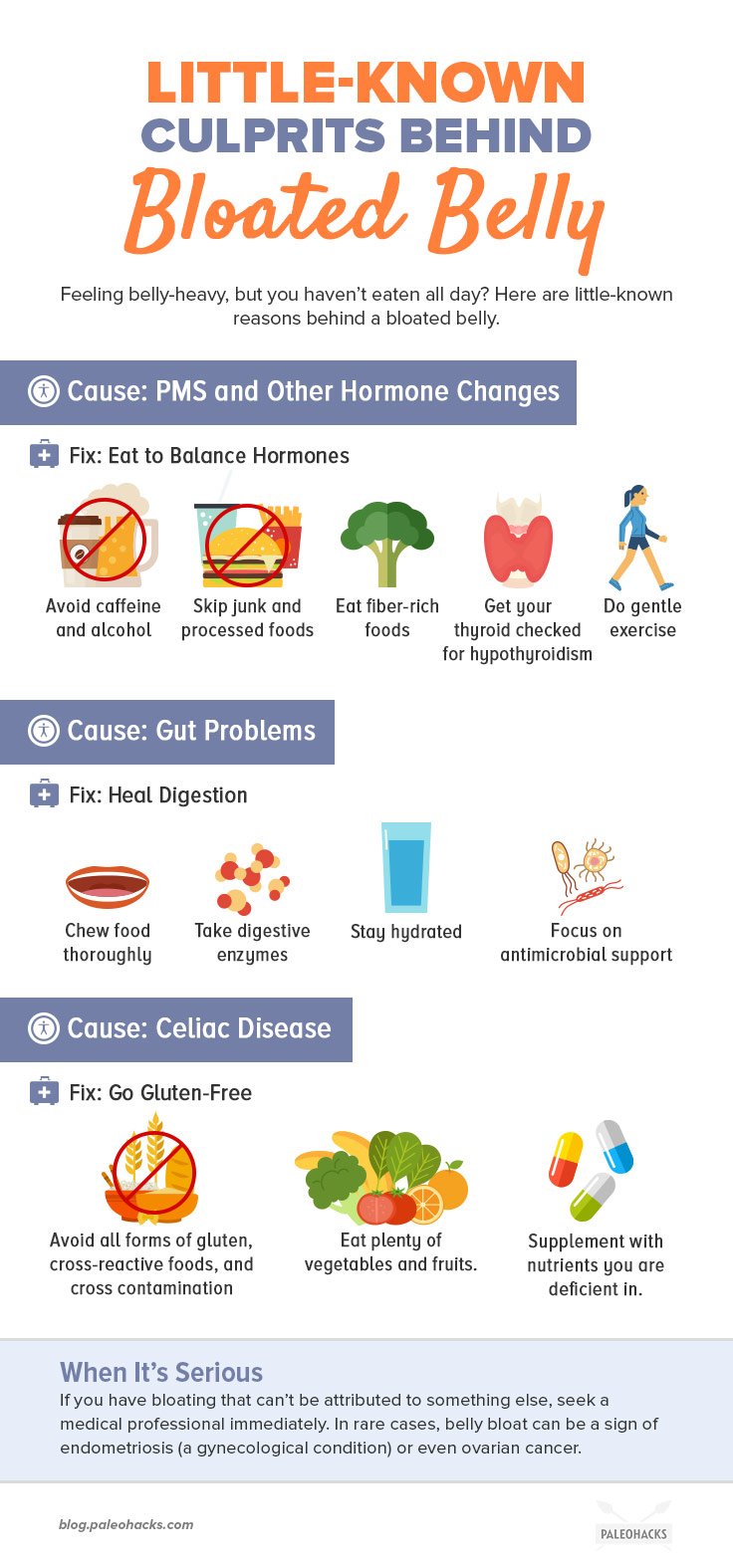
(Read This Next: 10 Foods That Cause Bloating and What to Eat Instead)


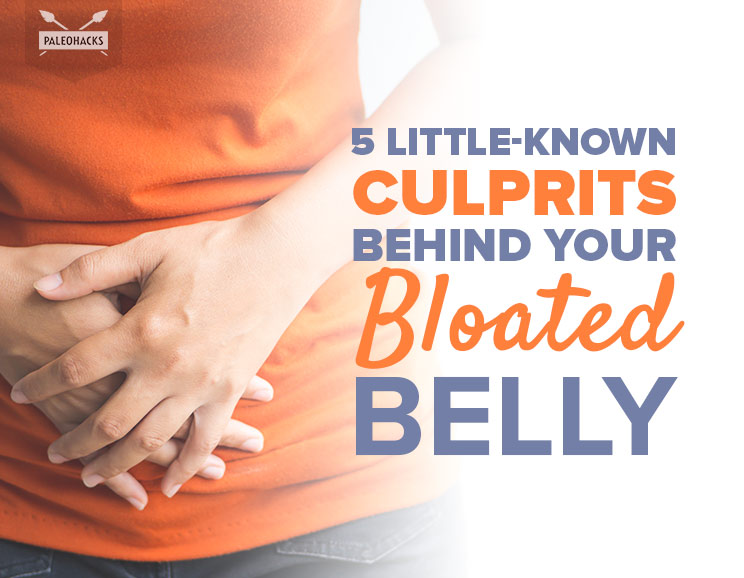
 Mint Chocolate Chip Cupcakes
Mint Chocolate Chip Cupcakes
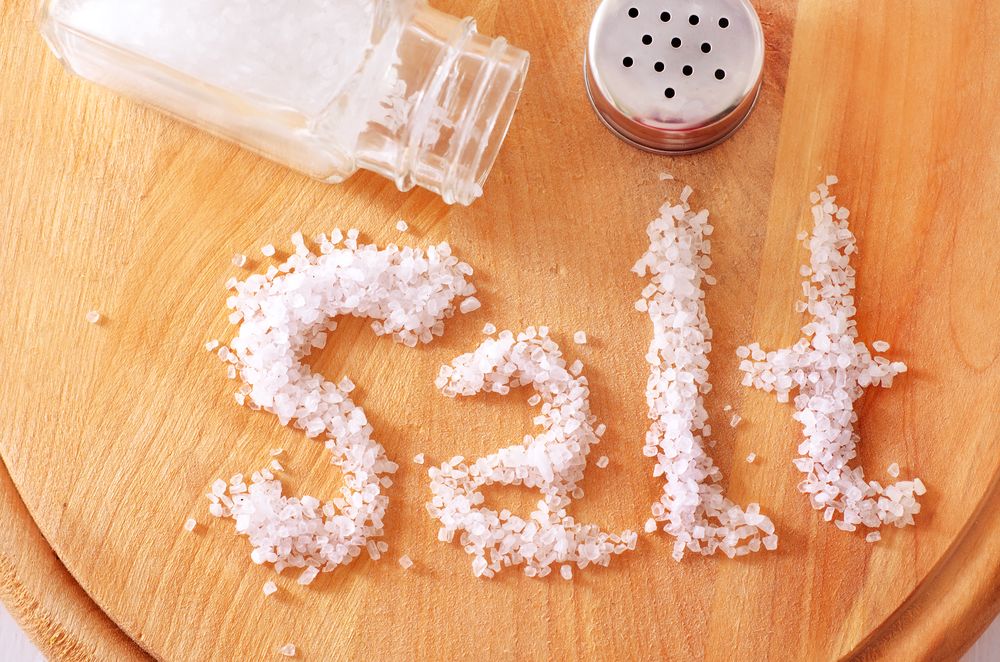

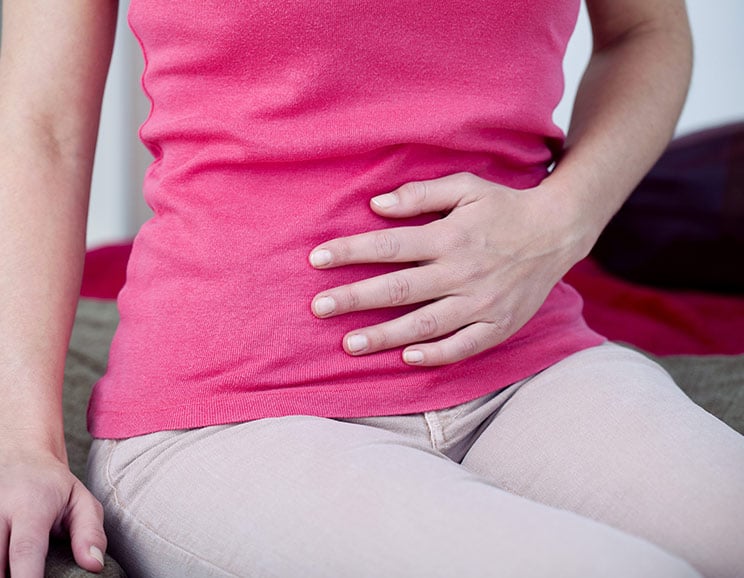



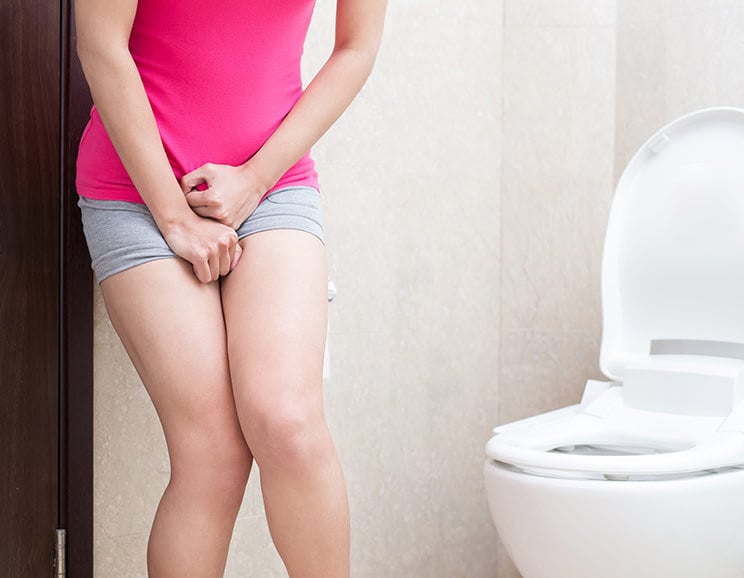


Show Comments